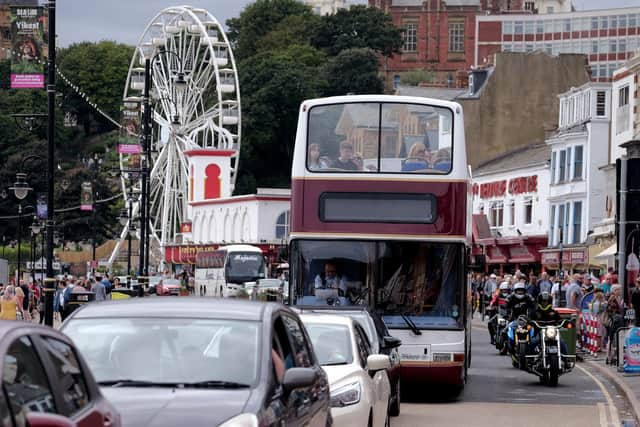UK holiday lets a positive sign for the hospitality industry here - Morgan Morris
This, coupled with the current cost of living crisis, has meant many families have been choosing to save themselves the pain and the money of flights by spending their holidays in the UK instead.
The continued high demand for staycations has resulted in an ever-increasing number of holiday lets available in the UK. In England alone, there has been a 40 per cent rise over the past three years. Nationally, according to the Campaign to Protect Rural England (CPRE), between 2015 and 2021, there was a 1,000 per cent increase in short-term lets.
Advertisement
Hide AdAdvertisement
Hide AdConverting a second home, annex, or even a spare room into a holiday rental has become a second source of income for many. According to a recent survey conducted by Airbnb, over a third of current UK hosts responded that they had decided to become Hosts to help combat the cost of living crisis. The average Airbnb also generates around £6,000 a year, so it’s not difficult to see why more people are signing up.


There’s no doubt that the hospitality industry is already facing huge challenges. Whether it’s staff shortages, soaring costs of food and energy, or tax rises, hospitality’s post-pandemic recovery is being hampered.
Despite this, revenue for businesses is expected to rise by 30 per cent, according to the recent UK Hospitality Challenges report.
More holiday lets can mean more visitors in certain areas who will go on to spend money at local businesses, restaurants, attractions and so on. So, in some ways, more rentals can give the hospitality industry a boost.
Advertisement
Hide AdAdvertisement
Hide AdFor more traditional accommodation such as hotels and bed and breakfasts, however, the rise in short-term holiday lets could see more of a negative impact. Currently, the number of holidaymakers staying in hotels versus holiday rentals is roughly equal. However, if more people choose rentals, hotels will feel the impact of less income.
A growing number of holiday rentals can also have a positive impact in other areas. They can create jobs not only in other hospitality sectors but also in services that those rentals will require, including cleaners, tradespeople, and decorators to spruce up properties. In fact, in employment terms, tourism has been the fastest-growing sector since 2010. It is predicted to be worth £257.4bn by 2025, according to Visit Britain.
However, holiday rentals have been receiving more negative attention recently as their increased number can lower the amount of available housing. This then pushes up property prices, which residents struggle to afford.
Outside of tourist seasons, it can also leave small villages emptier than they would otherwise be. This has a negative impact on local businesses.
Advertisement
Hide AdAdvertisement
Hide AdBecause of this, calls are growing for more regulation of the holiday rental market. Scotland, Northern Ireland, and Wales have already begun to implement new regulations, and they are currently under consideration in England.
Morgan Morris is the group chief executive at Slingsby.